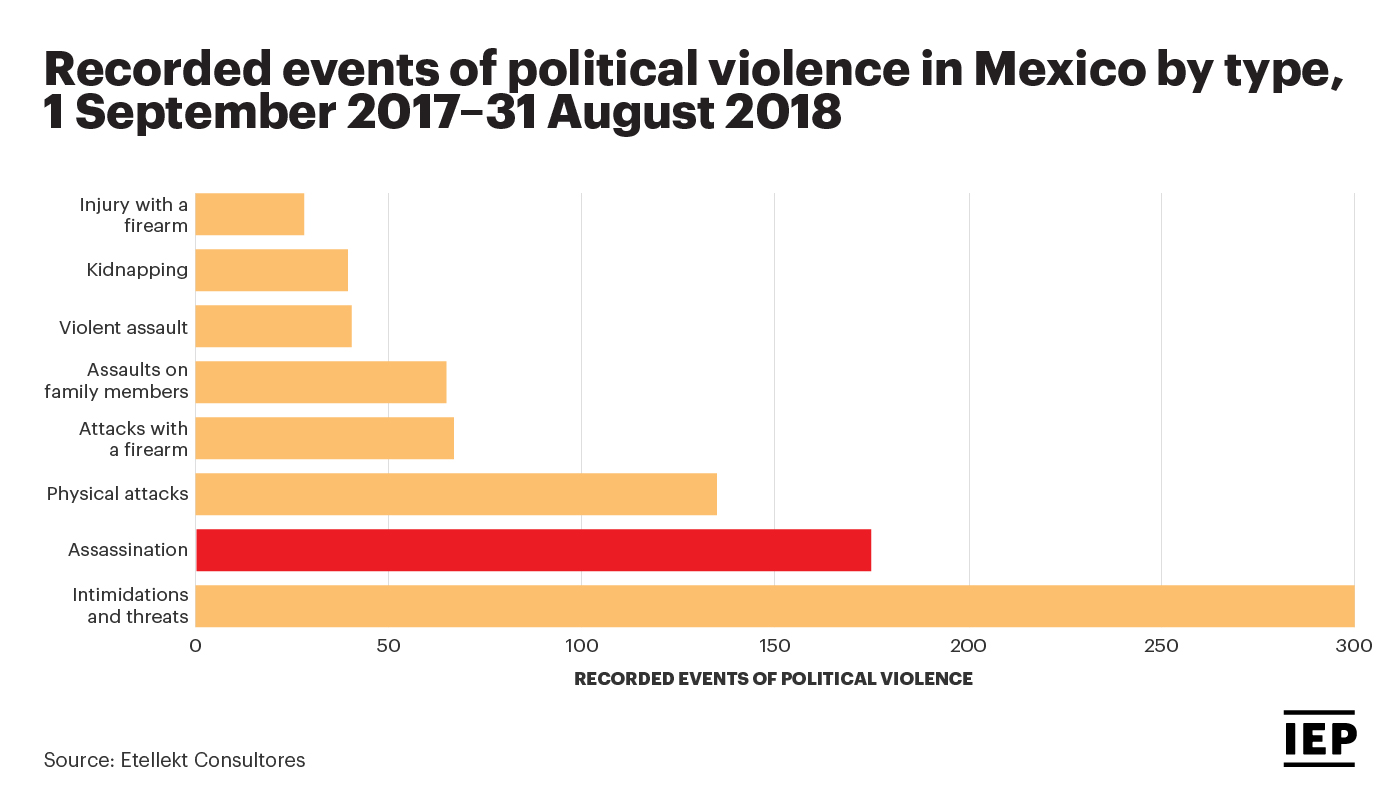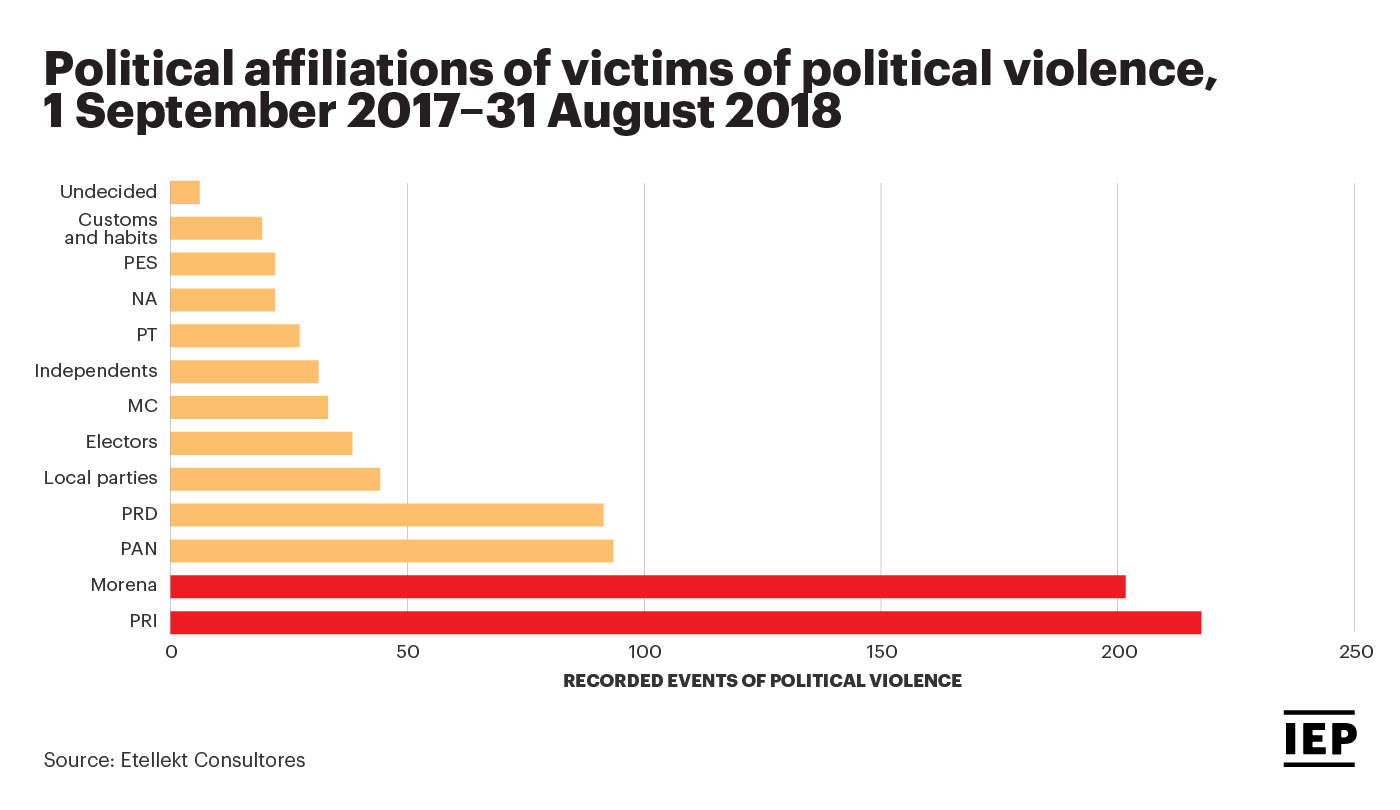As Mexico approaches its midterm election in June 2021, the country is facing a rapid uptick in violence directed towards the country’s municipal candidates and higher officials.
According to reports, these developments could potentially render it the most violent election since the Mexican Revolution more one hundred years ago.
The period between September 2020 and the first week of March 2021 has been deadly, with more than 126 politicians and candidates assassinated.
At the same time, Mexico is currently witnessing a sharp rise in kidnappings, robbery, threats and violence, constituting a 4% increase compared to the 2018 election.
Violence is expected to surge closer the election day when the country appoints 500 new lawmakers, 15 governors, and more than 20,000 local officials into the country’s local government offices.
According to data from the Institute for economics & Peace (IEP), Mexico remains one of the most dangerous places in the world to be a local politician.
The 2020 Mexico Peace Index shows that the 2018 is currently thought to be the country’s most violent election in the country since 1910, when that year’s presidential contest sparked the 1910-1920 Mexican Revolution.

From 1 September 2017 to 31 August 2018, 850 events of political violence were recorded across Mexico. This time span captures the ten months prior to the July 1st 2018 election and the two months following, during which violence continued during the political transition.

During this period, a large majority — 81 percent — of recorded attacks were targeted at opposition figures, suggesting that assailants were typically either aligned with the incumbent or found the incumbent’s policies preferable to the opposition’s.
Assailants may have been responding to proposed changes in policy by the candidates or in a more pragmatic sense, the perception that incumbent politicians are more tolerant of organised crime.
Targeted political violence occurs amidst a generally high level of violence and crime in Mexico, two-thirds of which is linked to organised criminal activity, according to IEP research.
In the 1990s, Mexico became the base for several major criminal cartels who, through a series of financial agreements with politicians and law enforcement agencies, were enabled to grow their industry to be worth billions of dollars.
The violence directed towards local candidates and government officials is often employed as a means for cartels and other criminal networks to maintain de facto territorial control over jurisdictions where traditional corruption through bribery and threats is no longer sufficient.
The fragmentation of powerful cartels, the diversification of crime and the rise of armed conflict between cartels have resulted in more outward and direct violence against political candidates, often along party lines depending on prior allegiances and security guarantees.
Look out for the soon-to-be released 2021 Mexico Peace Index on our resources page.